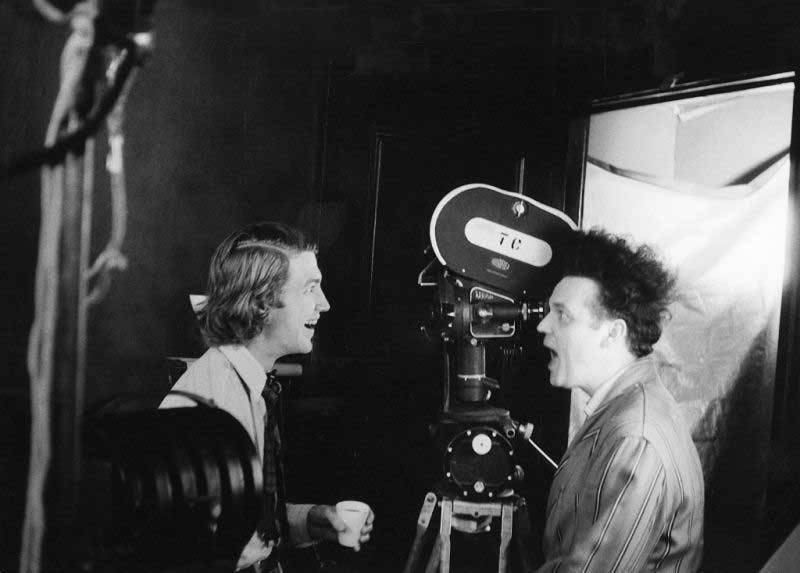The pilot episode of Twin Peaks captures a quintessential David Lynch moment, beginning with the mundane routines of high school life. A girl sneaks a cigarette, a boy is summoned to the principal's office, and a teacher takes attendance. Suddenly, the normalcy is shattered when a police officer enters the classroom and whispers to the teacher. A scream pierces the air, and through the window, a student is seen sprinting across the courtyard. The teacher struggles to hold back tears as the anticipation of an announcement fills the room. Lynch's camera then focuses on an empty seat, signaling the absence of Laura Palmer, whose death the students slowly realize. This scene masterfully encapsulates Lynch's signature style, where everyday life masks deeper, unsettling truths.
David Lynch was renowned for his meticulous attention to surface-level details, yet he always delved deeper, revealing the disquieting undercurrents beneath. The Twin Peaks moment, while emblematic of his career's thematic essence, is but one of many that his fans could cite. Over his 40-plus years of creating movies, TV, and art, Lynch's work resonated differently with each admirer, each finding their own "Lynchian" moment.
The term "Lynchian" has become synonymous with an unsettling, dream-like quality that defies easy categorization. This is the essence of what makes Lynch's passing so poignant for his fans—an artist with a singular voice, yet universally impactful. Like "Kafkaesque," "Lynchian" transcends the specifics of his work to describe a broader, more pervasive sense of disorientation and unease.
For budding film enthusiasts, watching Eraserhead was a rite of passage, a tradition that continued with Lynch's own teenage son, who, years later, watched it alongside his father. The son and his girlfriend even embarked on a Twin Peaks binge, reaching the Windom Earle era of Season 2, showcasing the timeless appeal of Lynch's work.
Lynch's ability to craft timeless, albeit odd, narratives is evident in Twin Peaks: The Return (2017), where he chose to depict a child's bedroom as if it were from 1956, a nod to his own childhood. Yet, this nostalgic setting exists within a world that only Lynch could imagine, complete with clones from other dimensions and surreal violence.
During Hollywood's nostalgia boom, Lynch took the greenlight for Twin Peaks: The Return and did what he wanted, leaving audiences bewildered by not reviving the original series' key characters in meaningful ways. This was quintessential Lynch, refusing to conform to expectations.
Even when Lynch played by Hollywood's rules with Dune, the result was uniquely his, despite being a commercial misfire. His version of the epic tale is interspersed with bizarre imagery, such as a cat/rat milking machine, showcasing his distinctive vision. For a deeper dive into Lynch's experience with Dune, readers can explore Max Evry's book, A Masterpiece in Disarray.
Lynch's The Elephant Man is another testament to his ability to blend beauty with the bizarre. This film, his closest brush with mainstream acclaim, portrays the touching story of John Merrick against the backdrop of a cruel and disorienting world, embodying the "Lynchian" essence.
Attempting to define Lynch's work by genre or trope is futile, yet his films are unmistakably his. His work delves into the world beneath ours, often pulling back the curtain to reveal what lies behind. Blue Velvet, for instance, starts as a seemingly conventional noir but descends into a surreal underworld beneath the facade of mid-century Americana.
Lynch's influence extends to a new generation of filmmakers. I Saw The TV Glow (2024) features a scene reminiscent of Lynch's style, with its dreamlike atmosphere and surreal elements, directly inspired by Twin Peaks. Filmmakers like Yorgos Lanthimos, Robert Eggers, Ari Aster, David Robert Mitchell, Emerald Fennell, Richard Kelly, Rose Glass, Quentin Tarantino, and Denis Villeneuve have all drawn from the "Lynchian" well, incorporating his surrealism and exploration of the hidden layers of reality into their work.

While David Lynch may not be everyone's favorite filmmaker, his impact marks the end of an era. His films evoke a sense of a bygone time while exploring the unseen world just beyond our usual perception. As we continue to seek out those "Lynchian" elements lurking beneath the surface, his legacy as an influential artist endures.

 Latest Downloads
Latest Downloads
 Downlaod
Downlaod




 Top News
Top News









